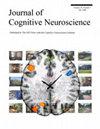回忆的神经特征对记忆质量和特定事件特征敏感。
IF 3
3区 医学
Q2 NEUROSCIENCES
引用次数: 0
摘要
情景记忆反映了多模态特征的限定表征,这些特征可以以不同的精度被回忆起来。最近的功能磁共振成像研究表明,从记忆中检索信息的准确性和内容涉及与海马体共同激活的后内侧颞叶和顶叶区域网络。然而,相比之下,关于记忆内容和准确性如何影响脑电图(EEG)捕获的记忆的共同神经特征,人们知之甚少,其中回忆与ERP和神经活动的振荡测量的变化有关。在这里,我们使用了先前在[Cooper, R. a ., & Ritchey, M.]中报道的多特征范式,皮质-海马体网络连接支持情景记忆的多维质量。[j]脑电与脑电相结合的连续记忆测量,表征情景记忆中驱动ERP和振荡标记的信息的内容和质量。在左后脑区有一种常见的记忆提取特征,被称为晚期积极成分,它对整体记忆质量和空间特征回忆的准确性都很敏感。对回忆过程中振荡标记的分析表明,α / β非同步受整体记忆质量和个体记忆特征的调节。重要的是,我们发现了这两个记忆提取的神经标记之间的关系的证据,表明它们可能代表了回忆经验的互补方面。这些发现证明了脑电图识别的时间敏感和动态过程如何与整体情景回忆相对应,也与记忆中精确特征的检索相对应。本文章由计算机程序翻译,如有差异,请以英文原文为准。
Neural Signatures of Recollection Are Sensitive to Memory Quality and Specific Event Features
Episodic memories reflect a bound representation of multimodal features that can be recollected with varying levels of precision. Recent fMRI investigations have demonstrated that the precision and content of information retrieved from memory engage a network of posterior medial-temporal and parietal regions co-activated with the hippocampus. Yet, comparatively, little is known about how memory content and precision affect common neural signatures of memory captured by EEG, where recollection has been associated with changes in ERP and oscillatory measures of neural activity. Here, we used a multifeature paradigm previously reported [Cooper, R. A., & Ritchey, M. Cortico-hippocampal network connections support the multidimensional quality of episodic memory. eLife, 8, e45591, 2019] with continuous measures of memory, in conjunction with scalp EEG, to characterize the content and quality of information that drives ERP and oscillatory markers of episodic memory. A common signature of memory retrieval in the left posterior regions, called the late positive component, was sensitive to overall memory quality and also to precision of recollection for spatial features. The analysis of oscillatory markers during recollection revealed that alpha/beta desynchronization was modulated by overall memory quality and also by individual features in memory. Importantly, we found evidence of a relationship between these two neural markers of memory retrieval, suggesting that they may represent complementary aspects of the recollection experience. These findings demonstrate how time-sensitive and dynamic processes identified with EEG correspond to overall episodic recollection and also to the retrieval of precise features in memory.
求助全文
通过发布文献求助,成功后即可免费获取论文全文。
去求助
来源期刊
CiteScore
5.30
自引率
3.10%
发文量
151
审稿时长
3-8 weeks
期刊介绍:
Journal of Cognitive Neuroscience investigates brain–behavior interaction and promotes lively interchange among the mind sciences.

 求助内容:
求助内容: 应助结果提醒方式:
应助结果提醒方式:


